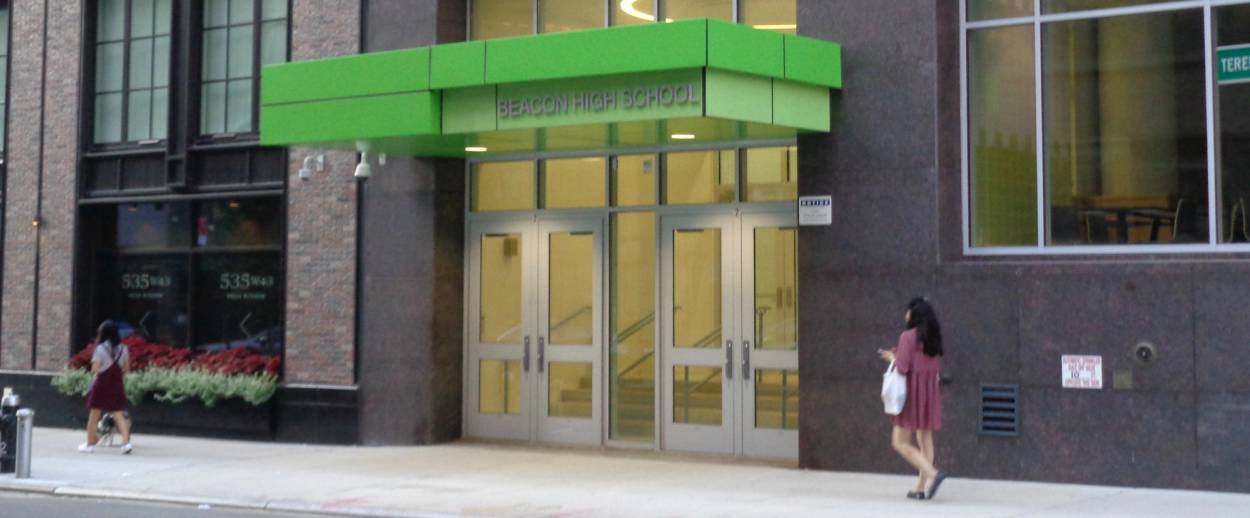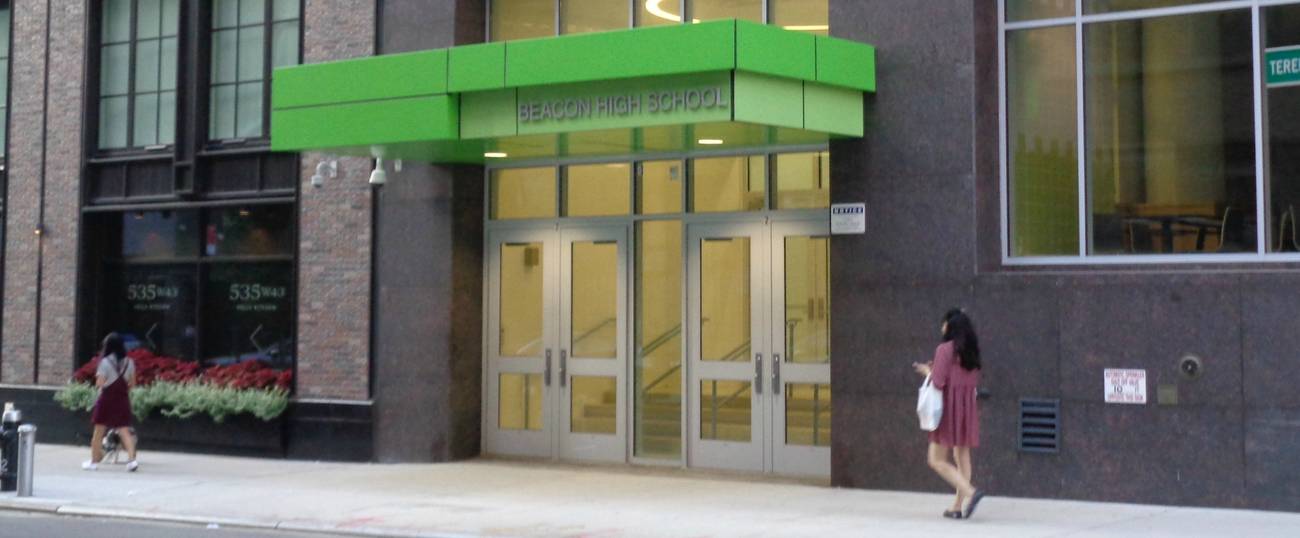Did an Elite NYC High School Violate the City’s Guidelines by Observing Moment of Silence for Gaza?
The Chancellor’s office claims it was civic engagement, but some Jewish students felt hurt




It’s been about a month since The Beacon School, a prestigious and liberal-minded public high school in the Hell’s Kitchen area of Manhattan, held a moment of silence in memory of 62 Palestinians killed during clashes along Israel’s border with Gaza. The event sparked immediate controversy, with Fox News reporting that the school had “[held] a moment of silence for Hamas.” On May 16th, Hamas official Salah Bardawil claimed that some 50 of the 62 fatalities were members of the Palestinian Islamist group; at least 10 of them belonged to Hama’s professional internal security service. It is unclear whether the Beacon School has held similar commemorations for, say, refugees the Turkish military has shot along the country’s border with Syria, or the uncounted civilian victims of US military operations overseas. Still, a parent and student petition in favor of the commemoration got “hundreds” of signatures, according to press reports.
A June 18th letter from the Zionist Organization of America to the Chancellor’s office of the New York Public school system now alleges that the incident was a violation of city’s own guidelines. “[O]fficials at The Beacon School violated Chancellor Regulation D-130, which prohibits school facilities from being used for partisan politics of any sort, write ZOA president Mort Klein and Susan Tuchman, director of the ZOA Center for Law and Justice. “As you know, the regulation reflects New York City’s legitimate interest in preventing its public educational mission from getting ensnared in partisan politics.”
Whether the moment of silence counts as “partisan politics” is a debatable point. The commemoration wasn’t specifically held in Hamas’s honor. The school and chancellor’s office can argue that this was a politically neutral pause in the school day in memory of people who met a violent death. They can just as easily argue that letting students hijack the school’s public address system doesn’t count as official tolerance or endorsement.
But things are never that simple as far as this particular conflict is concerned. In the letter, the ZOA claims that “Jewish students and teachers reported feeling threatened and afraid for their safety.” According to the letter, even within the seemingly esoteric matter of moments of silence at a single New York school, Israel’s enemies are being honored and the Jewish state’s conduct is being held to a maliciously unfair standard. The lack of action or statement from the Chancellor’s office suggests to the ZOA that the city government either approves of this state of affairs or believes it isn’t important enough to be worthy of comment. When reached for comment, the Chancellor’s office told Tablet, “We support civic engagement and advocacy amongst students, and ensure that schools provide inclusive environments where students are able to respectfully discuss current events. We investigated the matter and it was appropriately addressed.”
Whatever the intentions of the students who held the moment of silence—or the adults who allegedly allowed it to take place— it’s clear that the incident caused stress and dissension among at least some the Beacon School’s Jewish students. “As a Jewish student, I could see a lot of my Jewish friends get very weird when the moment of silence started,” Beacon School junior Sophie Steinberg told the New York Post last month. “They don’t know how to feel. They don’t know how to fit into all of this.” Perhaps that’s the best argument for why the moment of silence was inappropriate: Teenagers are no less confused about events in the Middle East than the rest of the world tends to be. Jews eventually need to reflect on how they may or may not “fit into all of this,” but maybe instructional time at a public high school isn’t quite the proper venue for it.
Armin Rosen is a staff writer for Tablet Magazine.